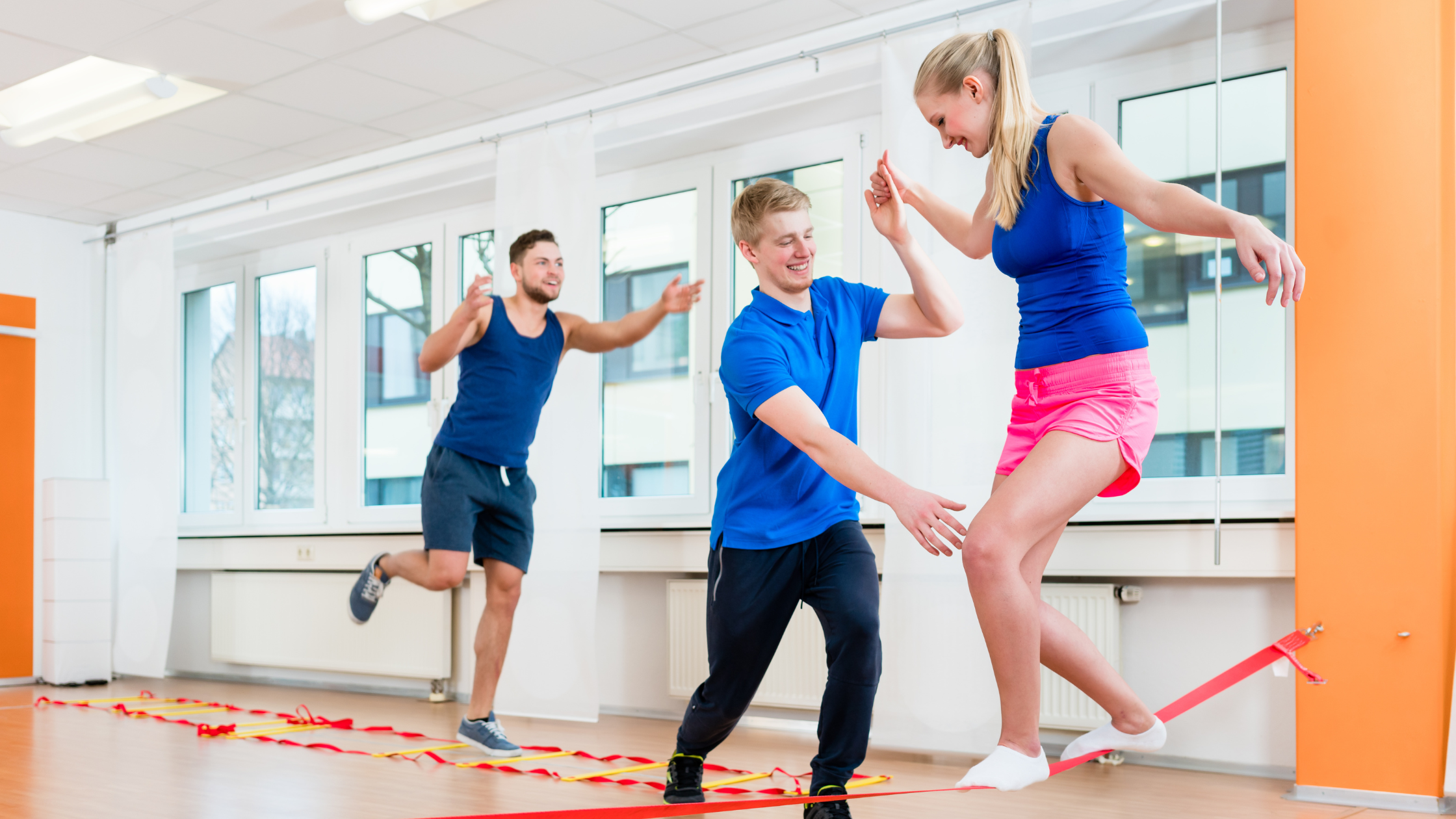Do you wonder what a sports physio does? Well, you’re in the right place! In this article, we’ll delve into the world of sports physiotherapy and explore their role in injury prevention and rehabilitation.
With their specialised training and qualifications, sports physios are experts in helping athletes recover and optimise their performance.
So, if you’re curious about the importance of sports physiotherapy and how they collaborate with athletes and teams, keep reading! Visit alignhc.com.au to learn more about physiotherapy.
Key Takeaways
- Sports physiotherapists help athletes prevent and recover from injuries.
- They provide personalized treatment and rehabilitation programs to optimise an athlete’s physical condition.
- Sports physios aim to improve strength, flexibility, and movement patterns.
- They play a crucial role in injury prevention, rehabilitation, and overall wellness.
What Does a Sports Physio Do

A sports physio helps athletes prevent and recover from injuries by providing personalized treatment and rehabilitation programs.
The role of a sports physio in performance enhancement is crucial as they work to optimise an athlete’s physical condition and prevent any potential injuries that may hinder their performance.
Through a combination of manual therapy techniques, exercise prescription, and injury prevention strategies, sports physios aim to improve an athlete’s strength, flexibility, and overall movement patterns.
By addressing any underlying issues and implementing appropriate interventions, sports physiotherapy not only helps athletes perform at their best but also promotes overall wellness.
This comprehensive approach ensures that athletes can stay in peak physical condition, minimise the risk of injury, and maintain their long-term health and well-being.
The Qualifications and Training of a Sports Physio
To become a sports physio, you’ll need to complete specific qualifications and training that equip you with the necessary skills and knowledge to work with athletes. The qualifications required to become a sports physio typically include a bachelor’s degree in physiotherapy or a related field. Additionally, many sports physios choose to pursue further specialisation through postgraduate courses or certifications in sports physiotherapy. These programs focus on advanced techniques and treatments specific to sports-related injuries and conditions.
The training of a sports physio involves a combination of classroom instruction and hands-on clinical experience. During your training, you’ll learn about anatomy, physiology, biomechanics, and exercise science, as well as specific assessment and treatment techniques for sports injuries.
It’s important to continually update your skills and knowledge through continuing education courses to stay current in the field and provide the best care to athletes.
The Role of a Sports Physio in Injury Prevention
Sports physios play a vital role in preventing sports injuries. Their expertise in injury prevention is crucial for athletes looking to optimise their sports performance and minimise the risk of getting injured.
A sports physio utilises their knowledge of biomechanics, anatomy, and physiology to identify potential risk factors and develop personalized injury prevention strategies. These strategies may include strength and conditioning programs, flexibility exercises, and proper warm-up techniques.
By addressing muscle imbalances, correcting faulty movement patterns, and providing guidance on injury prevention techniques, sports physios help athletes enhance their performance while reducing the likelihood of sustaining injuries.
Additionally, they educate athletes on proper nutrition, hydration, and recovery strategies, which are essential for maintaining optimal physical condition and preventing injuries.
Through their proactive approach, sports physios contribute significantly to the overall well-being and longevity of athletes.
The Importance of Sports Physiotherapy in Rehabilitation
As a sports physio, you play a crucial role in the rehabilitation process, helping athletes recover from injuries and regain their optimal physical condition. The importance of early intervention can’t be overstated in the field of sports physiotherapy. When athletes sustain injuries, immediate attention and treatment are key to preventing further damage and facilitating a faster recovery.
Sports physiotherapy focuses on specific exercises and techniques that target the affected area and promote healing. By addressing the injury early on, you can help athletes minimise pain, reduce swelling, and prevent complications. Additionally, sports physiotherapy offers a range of benefits, such as improving joint mobility, enhancing muscle strength, and optimising overall performance.
Through a combination of manual therapy, therapeutic exercises, and specialised equipment, you can assist athletes in reaching their full potential and returning to their sport with confidence.
How Sports Physios Collaborate With Athletes and Teams
Collaboration between sports physios and athletes and teams is essential for optimal performance and injury prevention. Effective collaboration techniques and communication strategies play a crucial role in the success of sports physiotherapy.
One key collaboration technique is regular communication between the physio and the athlete or team. This involves discussing goals, progress, and any concerns or issues that may arise.
Another technique is the development of personalized treatment plans based on the athlete’s specific needs and goals. This ensures that the physiotherapist and the athlete are working towards the same objectives.
Additionally, collaboration may involve educating athletes and teams about injury prevention strategies, proper warm-up and cool-down techniques, and exercises for strength and flexibility.
Frequently Asked Questions
How Much Does a Sports Physiotherapist Typically Charge for Their Services?
Sports physiotherapist fees vary depending on factors like location, experience, and type of service needed. It is important to contact different professionals to get an accurate idea of the costs involved.
What Are Some Common Injuries That Sports Physiotherapists Treat?
Sports physiotherapists play a crucial role in rehabilitating common sports injuries. They provide expert advice on injury prevention, offering valuable tips to keep you safe during physical activities.
Can Sports Physiotherapy Be Beneficial for Non-Athletes as Well?
Sports physiotherapy can indeed be beneficial for non-athletes. It can help individuals with chronic pain by providing targeted exercises and therapies to improve their mobility and reduce discomfort.
Are There Any Specific Techniques or Treatment Methods That Sports Physiotherapists Use?
Sports physiotherapists use a variety of specific techniques in their treatment methods. These techniques are effective for different types of injuries, helping athletes and non-athletes alike recover and prevent further damage.
How Long Does It Usually Take for Athletes to Recover From Sports-Related Injuries With the Help of a Sports Physiotherapist?
On average, athletes recover from sports-related injuries with the help of a sports physiotherapist in a timely manner. The role of the sports physiotherapist in rehabilitation is crucial for facilitating and speeding up the recovery process.

